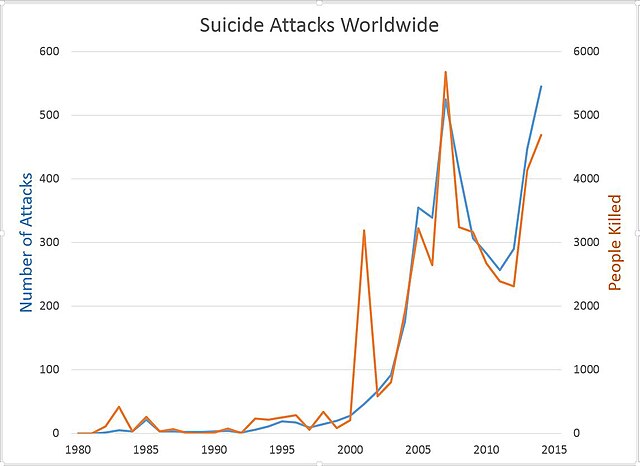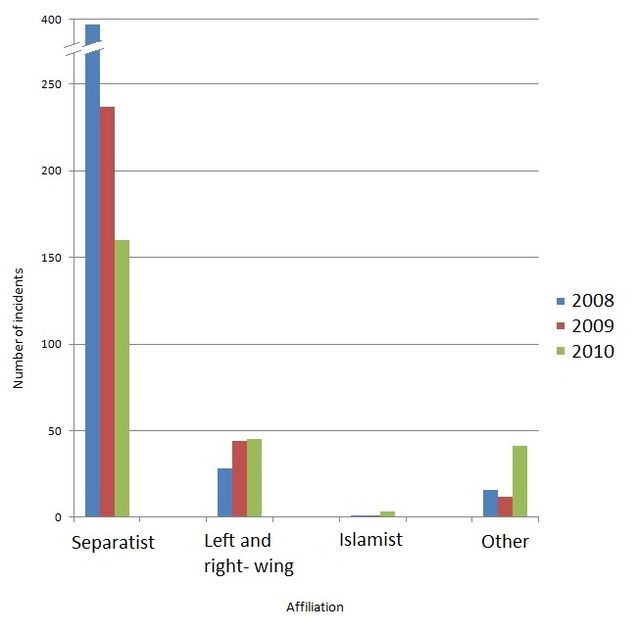A suicide attack is a deliberate attack in which the perpetrators knowingly sacrifice their own lives as part of the attack. These attacks are often associated with terrorism or military conflicts and are considered a form of murder–suicide. Suicide attacks involving explosives are commonly referred to as suicide bombings. In the context of terrorism, they are also commonly referred to as suicide terrorism. While generally not inherently regulated under international law, suicide attacks in their execution often violate international laws of war, such as prohibitions against perfidy or targeting civilians.
The September 11 attacks, one of the most infamous suicide attacks.
The number of suicide attacks grew enormously after 2000.
Chinese suicide bomber putting on 24 hand grenade-explosive vest prior to attack on Japanese tanks at the Battle of Taierzhuang.
A Japanese Mitsubishi Zero's suicide attack on the USS Missouri (BB-63), April 11, 1945.
Terrorism, in its broadest sense, is the use of violence against non-combatants to achieve political or ideological aims. The term is used in this regard primarily to refer to intentional violence during peacetime or in the context of war against non-combatants. There are various different definitions of terrorism, with no universal agreement about it. Different definitions of terrorism emphasize its randomness, its aim to instill fear, and its broader impact beyond its immediate victims.
United Airlines Flight 175 hits the South Tower of the World Trade Center during the September 11 attacks of 2001 in New York City, an act of terrorism planned by Osama bin Laden and executed by Al-Qaeda.
Seal of the Jacobin Club
Number of failed, foiled or successful terrorist attacks by year and type within the European Union. Source: Europol.
Aftermath of the King David Hotel bombing by the Zionist militant group Irgun, July 1946








